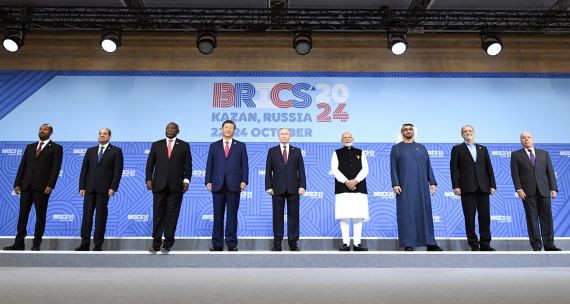Brian Lee Crowley and Sean Speer of the Macdonald-Laurier Institute in their opinion piece “China is not the answer to our trade woes,” (Globe and Mail, July 20), make the case that China is not the answer to Canada’s problems with the U.S. over NAFTA. Citing well-known economic statistics they make the case that China, which currently takes only 5 per cent of Canadian exports, could never replace the U.S. (70% of our exports) as Canada’s most important market for reasons of geographic proximity, existing market integration and supply chains, as well as the fact that Canadian products are not cost-competitive with China. Most of this is true and self-evident.
What is less self-evident is the corollary, that we should not pursue a free trade agreement with China because such action would be “fraught with serious economic and security problems.” We are admonished that “throwing in our lot with China isn’t the solution, even if it were possible.”
I am not aware of any responsible trade commentator who has suggested that China could or should replace the U.S. as Canada’s primary trading partner. But improving economic ties with the world’s second largest economy, probably one that will in a few short years surpass that of the United States, is surely not a question of turning our back on the U.S. and replacing it with China. Sorting out our trade relationship with the U.S. and improving our trading relations with China are not a zero-sum game, as Crowley and Speer’s comments seem to imply.
They list a litany of reasons why it is problematic to strengthen and improve the rules governing trade and investment with China; China has large trade surpluses and denies reciprocal market access; China has been accused of using licensing and joint ventures to access intellectual property; there are national security concerns because Chinese companies, whether private or state-owned are “agents of the state,” and so on. China is not a warm cuddly panda. It has a well-defined sense of its own self-interest, and like all countries can be expected to pursue those interests. Canada should do the same.
Not entering discussions on improving access to the Chinese market for Canadian products will not deal with any of these issues. Not agreeing on transparent ground rules for Chinese investment in Canada, investment that a number of sectors of the Canadian economy would welcome, will not develop Canada’s economy. It will lead to more drawn out, politicized debates like the recent Aecon case. Not seeking a way to arbitrate disputes and misunderstandings over intellectual property will not remove China as a competitor and will certainly not assist Canadian companies that want to protect their IP.
China, still a developing country in many but not all respects, is a more closed economy than Canada, and the Chinese have taken advantage of our lower tariffs and relative absence of investment and service barriers to generate large surpluses. A Free Trade Agreement that does not significantly reduce these differences and provide more reciprocal access would not be worth signing – but we won’t know what kind of an agreement is possible if we are not willing to engage with China.
As for the argument that Canada cannot compete with China on price, it all depends on what we are trading. We cannot compete with China (or other Asian economies) when it comes to producing many consumer products, but we still have plenty of products and services that we can export to China competitively, and we need a rules-based, predictable framework to do this. A properly negotiated FTA would provide such a framework.
No, China is not the “answer” to our trade woes with the Trump Administration, any more than improving trade with Japan, or the EU, or Latin America is the “answer.” There is no silver bullet. We have to deal with the U.S. as it is, and find ways to protect Canada’s interests. No single country will replace the close economic relationship that has been built up over the years by the sinews of commerce. But a better, more transparent, rules-based relationship with China, among other players in the Asia Pacific, would not hurt our efforts to defend our interests. If anything, it would strengthen them and demonstrate that while we will always have many eggs in the North American basket, we can compete globally.
Having meaningful trade and investment negotiations with China does not mean “throwing in our lot” with China. It means standing up for and pursuing Canadian interests instead of running in fear from a rising China.



